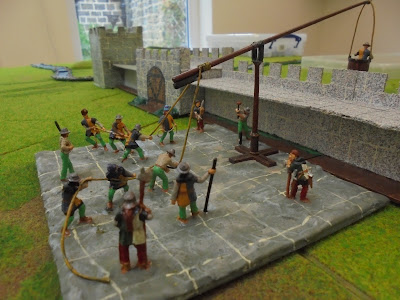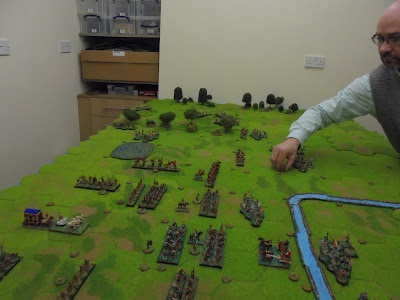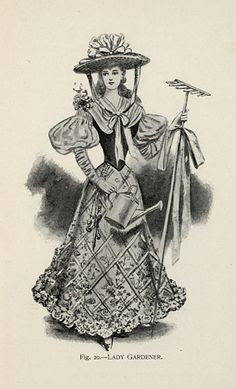The ceremonial roll out passed in front of the Casa Epictetus, but one of the competitors, number 95 in fact, didn't, managing to bust a wheel before they had gone a few hundred metres.
There was plenty of entertainment to keep the crowd occupied during the six (count them: six) hours between the start of the women's and men's races, although frankly most of us just went home, a journey in my case of about ten feet. I did however step out again to check out the excellent Yan Tan Tether peforming outside the Woolpack. Unfortunately for them their performance was interrupted by a huge hailstorm.
Even more unfortunately this resulted in the PA system going bang, in a manner somewhat reminiscent of the recent exploding kettle incident chez Epictetus. Indeed, as with the earlier occurrence, we should be thankful that this ill advised mixing of electricity and water didn't have far worse results. But instead, like the troupers they are, the ladies simply stepped off stage to be nearer their audience and sang unamplified. Admittedly because of the appalling weather the only people still there were their families and me, but nonetheless one must admire such a display of the Dunkirk spirit.




























